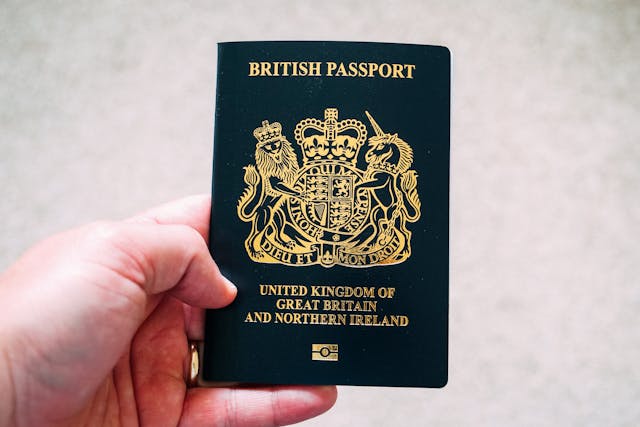In the process of applying for a passport, one crucial requirement is having your application form countersigned by an eligible individual who can confirm your identity. This individual must have known you for a certain period and be able to certify that the information provided is accurate. However, what if you find yourself in a situation where you don’t know anyone suitable to countersign your passport? This dilemma can be daunting, but there are alternative solutions to navigate this challenge effectively.
Understanding the Countersigning Requirement
The requirement for a countersignature on a passport application serves as a security measure to verify the identity of the applicant. It ensures that the information provided is genuine and helps prevent identity fraud. Typically, the countersignatory should be someone who holds a professional position or has known you for a minimum period, usually two years. This individual must not be related to you by birth or marriage, live at the same address, or be in a relationship with you.
Exploring Alternative Options
When faced with the predicament of not knowing anyone suitable to countersign your passport, there are several alternative options to consider. One approach is to reach out to professional services that offer countersignature services for a fee. These services are often provided by solicitors, accountants, or other professionals who can verify your identity and sign the necessary documents. While this option may incur additional costs, it can be a viable solution if you are unable to find a suitable person in your network.
Another alternative is to explore community resources or organizations that may provide countersignature services. Some community centers, libraries, or local government offices offer assistance with document verification and certification. By leveraging these resources, you may find a qualified individual who can fulfill the countersigning requirement for your passport application.
Overcoming Challenges and Ensuring Compliance
Navigating the process of obtaining a countersignature for your passport application when you don’t know anyone suitable can present challenges. It is essential to plan ahead and allocate sufficient time to explore alternative options. Researching professional services, community resources, or other avenues for document verification can help you identify viable solutions.
Moreover, when engaging with professional services or community organizations for countersignature assistance, ensure that they meet the specific requirements set forth by passport authorities. Verify that the individual providing the service is eligible to act as a countersignatory and has the necessary credentials to certify your identity accurately.
What Are The Requirements For A Passport Countersignature
To qualify for a passport countersignature, certain requirements must be met to ensure the validity and authenticity of the application. The individual providing the countersignature plays a crucial role in verifying the applicant’s identity. Here are the key requirements for a passport countersignature:
1. Eligibility of the Countersignatory
The countersignatory must be someone who holds a professional position or has known the applicant for a minimum period, typically two years. This individual should not be related to the applicant by birth or marriage, live at the same address, or be in a relationship with them.
2. Professional Standing
The person providing the countersignature should be of good standing in their community, as per official passport guidelines. This requirement ensures that the individual is reputable and can certify the applicant’s identity accurately.
3. Certification of IdentityÂ
The purpose of the countersignature is to certify the identity of the applicant. The countersignatory confirms that the information provided in the passport application is accurate and authentic.
4. Approval and Certification
A countersignature is undertaken to certify that both parties involved—the signer and the other party—have approved the provisions or actions outlined in the document. This process ensures mutual agreement and validation of the information provided.
By adhering to these requirements and guidelines, applicants can ensure that their passport applications meet the necessary standards for a valid and reliable countersignature.
What Documents Are Required For A Passport Countersignature
The documents required for a passport countersignature typically include the passport application form and the applicant’s passport photos. These documents must be signed by a suitable individual, known as the countersignatory, to verify the applicant’s identity. The countersignatory should be a person of good standing in their community, as per official passport guidelines. The purpose of this process is to ensure the authenticity and accuracy of the information provided in the passport application. By having these documents signed by an eligible countersignatory, applicants can fulfill the requirements for their passport application.
Conclusion
Encountering the situation where you don’t know anyone to countersign your passport can be a roadblock in the application process. However, by understanding the requirements, exploring alternative options, and ensuring compliance with regulations, you can overcome this challenge effectively. Whether through professional services or community resources, there are avenues available to assist you in obtaining the necessary verification for your passport application. By proactively addressing this issue and seeking appropriate solutions, you can navigate the passport application process successfully even when faced with such obstacles.



